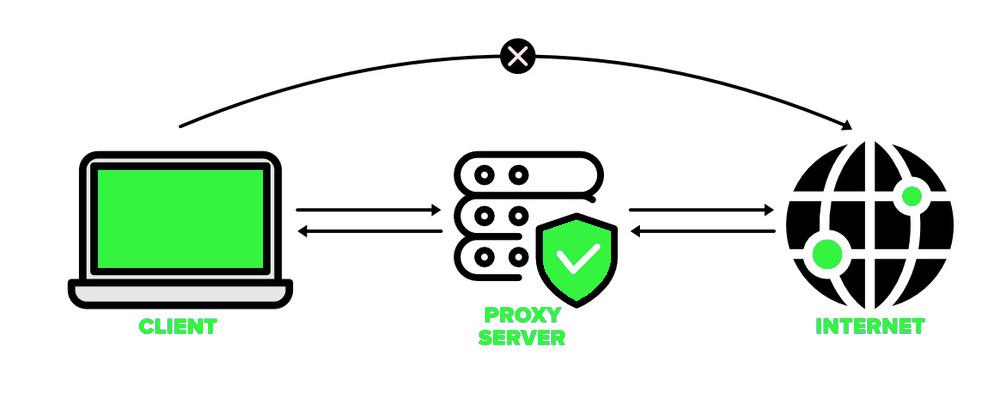Introduction
In the modern Internet environment, proxy servers play an important role. It can not only hide the user's real IP address, but also provide a variety of services after obtaining the user's IP. Knowing how to use a proxy server after knowing the IP address can help users better protect personal privacy and data security. Especially with the help of high-performance proxy services such as 98IP, users can achieve these goals more easily. This article will explore the functions of proxy servers and their application scenarios in depth.

Basic concepts of proxy servers
A proxy server is an intermediate server that receives user requests and forwards them to the target server. In the process, the proxy server can modify requests and responses to achieve a variety of functions. The main types of proxy servers include:
1. HTTP proxy: mainly used for web browsing, suitable for processing HTTP requests.
2. HTTPS proxy: supports encryption, suitable for websites that require secure connections.
3. SOCKS proxy: supports multiple protocols and is suitable for various types of traffic.
Applications after the proxy server obtains the user's IP address
After the proxy server obtains the user's IP address, there are several ways to use it:
1. Hide the user's real IP address
Using a proxy service like 98IP, the user's real IP address is hidden, and the target website can only see the IP address of the proxy server. This method can effectively protect the user's privacy and prevent being tracked.
2. Bypassing geographic restrictions
By using 98IP's proxy server, users can choose proxy IPs located in different regions, so as to easily bypass geographic restrictions and access global content.
3. Improve security
98IP provides an additional layer of security, especially in public Wi-Fi networks. By passing all traffic through the proxy server, users can reduce the risk of being hacked. In addition, 98IP also supports encryption to further protect user data.
4. Data caching and acceleration
Many proxy servers have data caching functions. When a user requests a web page, the proxy server will cache the content of the web page. If the user requests the same web page next time, the proxy server can directly provide the content from the cache without requesting the target server again. This method not only speeds up the loading speed, but also reduces the burden on the target server.
5. Monitor and record traffic
In some corporate or organizational environments, proxy servers can be used to monitor and record users' network activities. This method can help managers understand employees' online behavior and ensure that network usage complies with company policies. However, this application needs to comply with laws and regulations to ensure that user privacy is not violated.
6. Filter and control content
Proxy servers can set filtering rules to prevent users from accessing unsafe or inappropriate websites. For example, companies can use proxy servers to restrict employees from accessing social media or other entertainment websites to improve work efficiency. In addition, parents can also use proxy servers to control their children's online content.
How to choose a suitable proxy server
When choosing a proxy server, users should consider the following factors:
1. Speed and stability: Choose a proxy service with good speed and stability to ensure a smooth Internet experience.
2. Security: Make sure the proxy server provides encryption to protect user data.
3. Pricing policy: Understand the privacy policy of the proxy service to ensure that it does not record users' Internet activities.
4. Price: Choose a suitable paid or free proxy service according to your budget.
98IP is a reliable choice that provides high-quality services and support to ensure users' Internet experience.
Precautions for using proxy servers
1. Legality issues: When using a proxy server, be sure to comply with relevant laws and regulations and avoid any illegal behavior.
2. Data security: There may be a risk of data leakage when using a public proxy. It is recommended to use a reputable paid proxy service such as 98IP.
3. Performance impact: Some proxies may affect network speed, so be careful when choosing.
Conclusion
After obtaining the user's IP address, the proxy server can provide a variety of functions, including privacy protection, bypassing geographical restrictions, and improving security. With 98IP, users can better utilize these functions to protect personal information and network security. I hope this article can provide you with valuable information and help you better understand and use proxy servers.
Related Recommendations
- Classification of web crawler
- How can http proxy IP help companies meet price tracking challenges?
- How to evaluate cross-border e-commerce sellers 'stores?
- Indonesia's TikTok live broadcast transaction volume explodes, proxy IP has become a key driver
- Comparison of performance and security between IPv4 and IPv6
- Can using proxy IP improve the network speed
- Google Reverse Proxy Service
- Choose to use overseas IP or foreign IP proxy? Rules for Using Overseas Dynamic Residential Proxy
- 98IP tells you the key points of distributed crawler design
- How to use 98IP to improve network security

